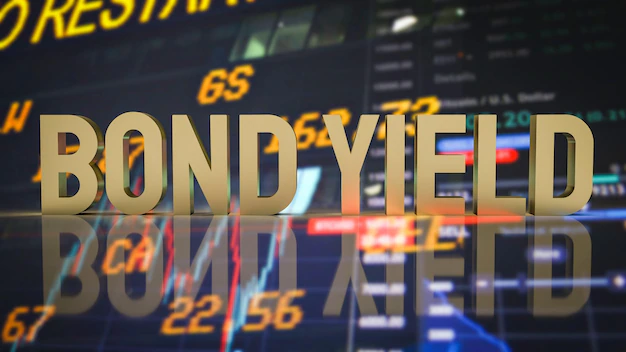5 Tax-Deductible Investments To Consider In 2023
by Sumona Finance 08 November 2022

The excitement of seeing your investment portfolio grow can certainly be overshadowed by the realization that you typically don’t get to keep all those gains that you make.
Taxes are a big contributor to reducing the amount of profit that your investments provide to you. Whether you’re investing for retirement or working toward fast-paced gains to increase your current income, taking steps to increase your benefits by reducing the amount that is siphoned off in taxes can keep you on track toward your goals.
While there are taxes associated with most investments you can minimize the amount that you are losing.
Top 5 Tax-Deductible Investments to Consider in 2023
There are tax-deductible investments to consider when managing your investment strategy and choosing to pivot. Read on to discover tax-deductible methods of investing in your future.
1. 401(k)/403(b) Employer-Sponsored Retirement Plans
One of the more familiar means of tax-free investing are employer-sponsored retirement plans best known as 401(k) or 403(b) for nonprofit companies. More than 34 percent of participants in retirement plans in the United States choose these types of accounts.
Your contributions to these plans are taken from your paycheck before taxes. This also means that your taxable income is reduced by this contribution amount, meaning fewer taxes are taken from your paycheck.

In addition to your contribution, your employer can contribute to your plan, even matching your investment for you. You are taxed on the gains of the plan when you begin to remove them from the plan.
If this takes place during your retirement (the typical plan) you will be taxed based on the lower tax bracket that you fall into as a retiree.
2. Municipal Bonds
Bonds issued by local government agencies are known as municipal bonds or muni bonds for short. These are bonds offered by the local government to raise money for any number of expenses such as road construction, building improvements, or downtown revitalization.
When you invest in these bonds you receive guaranteed interest payments. The profits that you receive from these investments are often local tax-free and may also be federally and state tax-free as well.

This varies from one municipality to another and you should make sure you understand the specifics before you invest. Alternatively, you may find that the interest earned on these bonds is taxed locally using an Alternative Minimum Tax (AMT).
If you know the details and choose the right bond the investment could provide you with a solid option for your portfolio.
3. Roth IRA
A Roth IRA (individual retirement account) provides investors with a way to continue to earn tax-free returns. The taxes on a Roth IRA are paid upon investing in the plan.
This means that you will have to pay taxes on the initial investment, but you are never taxed on your gains from the investments.

Additionally, qualified withdrawals from the plan are not taxed either. In short, you get to keep what you earn while your money is invested in the plan even though you were taxed on only the initial investment amount.
The return on investment is all yours and you don’t have to worry about the government taking your earnings. There are income guidelines for investing in this type of plan. You will want to confirm that you fit the parameters and verify your options. This is a good option for long-term planning and getting the most out of your money.
4. Tax-Free Exchange Traded Funds (ETFs)
These types of investments may provide tax breaks based on the type of bonds held in the EFT. With EFTs the investors pool their funds and invest in a diverse number and types of stocks. Investors cannot purchase individual stocks, but instead purchase blocks of stocks.
These can be fairly affordable and offer investors the opportunity to participate in multiple stocks at one time. In many cases, U.S. Government bond ETFs offer tax benefits from local, state, and sometimes federal taxes.

These types of funds are available in a wide variety of options and accessing some of them depends on a variety of factors including your income, age, and what type of risks you are willing to take.
In most cases, the individual investor doesn’t have much control over what specific stocks the EFT buys, but these can be a great way to reduce the tax liability for your investment.
5. Health Savings Accounts (HSA)
You may not relate health savings accounts to investing, but these can dramatically offset your healthcare expenses and provide you with a return that can be used for health care related expenses such as medications, equipment, and in some cases preventative care products.
The investment into this type of savings plan is pre-taxed and the withdrawals are often tax-free. Additionally, the contributions may also be tax deductible. These accounts can grow when not used and unused funds can often be rolled over into a retirement plan.
This can help with medical expenses in the retirement years. HSAs are only available to those who have a High Deductible Health Plan so you’ll need to confirm if you are qualified to participate.

Selecting viable investment options to add to your portfolio and your personal finance software should certainly include some tax-deductible choices. While some investment accounts and options may provide an initial tax-free investment others are taxed and provide tax-free gain.
And still, other options provide investors with the opportunity to defer their tax liability until they remove their gains from the investment. The right investment vehicle for your situation greatly relies on how much you intend to invest and over what period of time as well as when you need your investment to realize an accessible gain.
If you don’t plan to access the funds for many years choosing an investment plan for the long game is likely the best choice, deferring your tax liability until such time as your tax bracket has changed in retirement can be an excellent strategy for holding onto as much of your investment as possible.
Additionals:







































































































